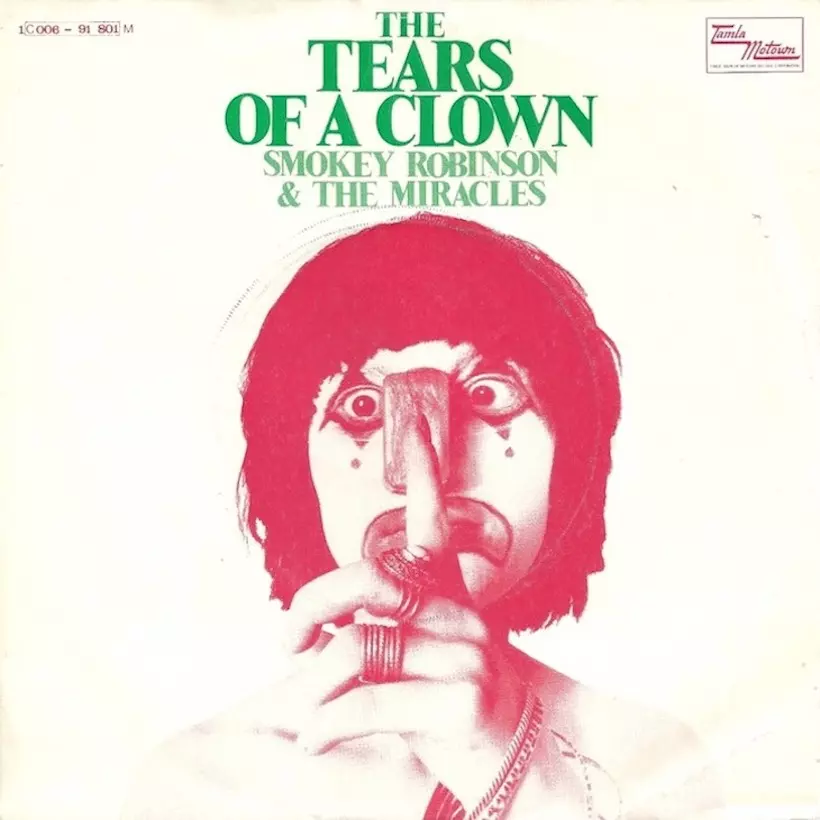Smokey Robinson’s “Tears of a Clown” is a song that has captivated audiences for decades with its poignant narrative of concealed heartbreak. This enduring ballad, known for its simple yet powerful lyrics and upbeat melody masking a melancholic theme, has transcended generations to become a soul music staple.
The Genesis of a Soulful Ballad
“Tears of a Clown” wasn’t an overnight success. Initially released by Smokey Robinson & the Miracles in 1967 as a track on their album “Make It Happen,” the song remained relatively obscure until its resurgence as a single in 1970. It was then that “Tears of a Clown” shot to the top of the charts, securing its place as a timeless classic.
The song’s origins are as fascinating as its enduring legacy. It resulted from a unique collaboration between two musical icons – Smokey Robinson and a young Stevie Wonder. Wonder originally composed the instrumental track with a distinct, circus-like melody. Robinson, captivated by the tune’s melancholic beauty, penned the lyrics, drawing inspiration from the tragic story of Pagliacci, the heartbroken clown from Ruggero Leoncavallo’s renowned opera.
Deconstructing the Lyrics: A Pagliacci in Disguise
The lyrics of “Tears of a Clown” are where the song truly comes alive, weaving a tale of heartbreak and hidden sorrow. The line, “Just like Pagliacci did, I try to keep my sadness hid,” serves as a poignant centerpiece, directly referencing the opera and revealing the protagonist’s inner struggle to conceal his pain behind a mask of feigned joy.
This theme of using laughter to mask turmoil resonates deeply with listeners. The song’s narrator, much like the tragic clown Pagliacci, grapples with the societal expectation to maintain a cheerful facade, even when the heart aches with unspoken pain.
Beyond the Pagliacci parallel, “Tears of a Clown” delves into universal experiences of heartbreak – lost love, rejection, and the bittersweet pang of moving on. These relatable themes have cemented the song’s place in the hearts of listeners worldwide, who find solace and connection in its raw and honest portrayal of human emotion.
A Legacy of Chart-Topping Success and Enduring Influence
“Tears of a Clown” achieved monumental success, reaching number one on the Billboard Hot 100 chart in 1970. Its popularity wasn’t confined to the US; the song topped charts across the globe, solidifying its status as a global phenomenon.
The song’s impact extends far beyond its initial chart success. Over the decades, “Tears of a Clown” has been covered by a diverse array of artists, from rock legends like The Rolling Stones to the soulful crooning of Luther Vandross. These reinterpretations are a testament to the song’s enduring appeal, proving that its themes of heartbreak and resilience transcend generations and musical genres.
Furthermore, the song’s title, “Tears of a Clown,” has permeated our cultural lexicon, evolving into an idiom used to describe someone masking their true feelings behind a façade of happiness. This linguistic imprint speaks volumes about the song’s impact, highlighting its ability to embed itself within our collective consciousness.
Unmasking the Magic: What Makes “Tears of a Clown” So Special?
Several factors contribute to the enduring magic of “Tears of a Clown.” The song’s ability to blend seemingly disparate elements – a circus-inspired melody, operatic themes, and soulful vocals – creates a unique and captivating listening experience.
The contrast between the upbeat tempo and the melancholic lyrics is particularly striking. This juxtaposition serves to heighten the song’s emotional impact, prompting listeners to feel the protagonist’s internal conflict more acutely.
Moreover, Smokey Robinson’s songwriting brilliance shines through in “Tears of a Clown.” His ability to distill complex emotions into accessible and relatable lyrics is a hallmark of his work. Robinson masterfully combines everyday language with poetic imagery, crafting a narrative that feels both deeply personal and universally resonant.
The song’s enduring popularity speaks to the power of music to evoke emotions, fostering connection and understanding. “Tears of a Clown” serves as a poignant reminder that beneath the surface, we all share a capacity for heartbreak and the struggle to navigate its complexities. And sometimes, the most joyful melodies mask the most profound sorrows.
Who originally sang “Tears of a Clown”?
While Smokey Robinson’s name is synonymous with “Tears of a Clown,” the song was initially performed and released by his group, Smokey Robinson & the Miracles. Their soulful harmonies and Robinson’s captivating lead vocals brought the song to life, setting the stage for its eventual rise to iconic status.
When did Smokey Robinson come out?
In the context of “Tears of a Clown,” the phrase “come out” refers to the song’s release as a single. While the track first appeared on the 1967 album “Make It Happen,” it wasn’t until 1970 that “Tears of a Clown” was released as a single, marking its breakthrough moment.
What Was Smokey Robinson’s Biggest Hit?
While Smokey Robinson boasts an impressive catalog of hits, “The Tears of a Clown” is widely considered his most successful single. Its chart-topping performance, enduring popularity, and cultural impact solidify its place as a cornerstone of his musical legacy.
What song did Smokey Robinson write for Marvin Gaye?
Smokey Robinson’s songwriting prowess extended beyond his work with The Miracles. He penned numerous hits for other Motown artists, including the soulful ballad “Ain’t That Peculiar” for Marvin Gaye. The song, released in 1965, became a signature tune for Gaye, showcasing Robinson’s ability to tailor his writing to an artist’s unique style and vocal abilities.

















2 thoughts on “Behind the Painted Smile: Deconstructing Smokey Robinson’s “Tears of a Clown””
Comments are closed.